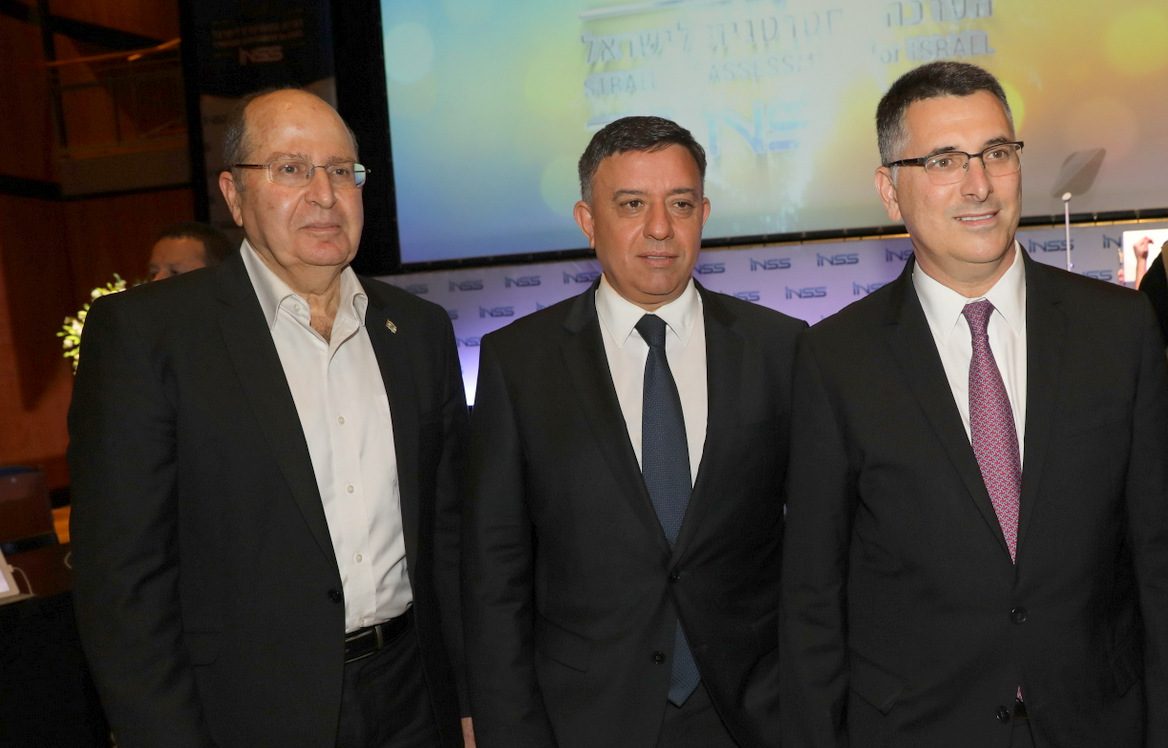
This panel posed five questions to three senior leaders who have the potential to be elected prime minister so that the public will be familiar with their objectives. The questions posed were 1. Does Israel meet the vision of its Zionist founders? 2. What is the main thing that you would do as Prime Minister? 3. How should Israel face the Iranian threat; 4. What would you suggest to Mahmud Abbas? 5. Which factors have brought about the loss of solidarity within Israel and how can we avoid it? At the panel’s conclusion, INSS Director Maj. Gen (ret.) Amos Yadlin remarked that all three leaders have a lot in common, as they all believe in the Zionist vision, place the people before themselves, and seek a political culture based on a respectful discourse.
Mr. Avi Gabbay, elected as the leader of the Labor Party and the “Zionist Camp,” responded that although no state has done what Israel has done in 70 years, we have lost the great vision. The leadership maintains the vision but doesn’t take a leap. Our vision is that the state should be the best state for its citizens. The most important value is unity of the people. The current leadership incites and creates hatred between groups, including toward Diaspora Jews.
Israeli politics need a great change, and we need to feel inspiration and not alienation from our leadership. As prime minister, Gabbay stated that he would take care of the interests of the state of Israel, unlike the current leadership, which has attacked all the institutions that serve the state, such as the army and chief justices. The best people should be appointed to public services. To take care of our interests, we must separate from the Palestinians and reach an agreement with the Sunni states. As for Iran, Israel should rely on its intelligence and military. Israel should prevent Iran from obtaining nuclear capability. We must use quiet diplomacy in order to achieve these goals.
Gabbay emphasized the need to separate from the Palestinians, to reach a two-state solution, to maintain Israel’s defensible borders alongside a demilitarized Palestinian state. He also emphasized the importance of trust and said that both sides need to take steps to show their trust in the other.
Gabbay stated that he believes that in the last decade, Israel has lost its way, because it has been controlled by a small group, about 3% of the population, who value land more than people. Change within the Likud is not enough; rather, the regime must be changed. Leadership can create a broader common denominator, and leadership should begin with example and with being a role model.
Lt. Gen (ret.) Moshe (Bogie) Ya’alon, former minister of defense, stated that as prime minister, he would change the style of leadership to one of honesty, morality, and unity. He would create a leadership that appoints people based on ability and would ensure that the state takes a responsibility for its citizens in health, welfare, and education, with multi-year plans in every ministry.
Ya’alon said that he does not see any chance for a permanent settlement with the Palestinians but does not want a binational state either. He suggested that Israel and the Palestinians agree to a non-permanent situation, recognizing that the Palestinians depend upon Israel for both economic and security reasons. The Palestinians will become a demilitarized autonomy, and through a regional initiative, we can solve the situation.
As for the Iranian threat, Israel should coordinate with its ally, the United States, and sanctions should be applied so that Iran will not have nuclear capabilities.
Ya’alon acknowledged that he has not given up on the Zionist dream, and that while Israel is economically strong, it is no longer on the path to becoming an exemplary society. A unifying leadership is needed that will provide solutions, equal opportunities, and that will not discriminate between rich and poor.
Mr. Gideon Sa’ar, former minister of education, stated that Israel has realized the Zionist vision of its founders, and in the next decade, most of the Jewish people will be in Israel. There is a feeling of a loss of unity, however, and we must strengthen the unity o the people. The political opponent is not the enemy. The vision of the founders does not need to be compromised. The DNA of the state is Jewish, Zionist, and Democratic.
Sa’ar stated that creating a Palestinian state will not advance peace. Abu Mazen’s story as a leader is over. He has lost his legitimacy. He does not offer Israel nor his people anything. Israel should not offer concessions to him, even “separation” we should not seek.
He emphasized that Iran is Israel’s greatest challenge. The possibility of the United States leaving the nuclear agreement with Iran is in Iran’s interests, as Iran seeks the split of the international community. An American move could also cause Iran to leave the agreement. Israel must be prepared for this militarily. Israel must not allow Iran to realize the creation of missile factories in Lebanon and Syria. This is a red line. Another red line is Iranian military operations in Syria. Weight, however, must be given to Iran’s domestic problems, which Israel must watch carefully.
According to Sa’ar, Israel needs to create alliances with minorities in the region, such as the Kurds. Israel must also be ready for next conflict on the horizon with Hamas, in which we must seek victory.
Sa’ar emphasized that Israel should strengthen the connection with diaspora Jews, referring to it as a security issue. Israel should take responsibility for the Jews in the world and prepare a program to strengthen Jewish education and identity in the diaspora. This would be the task of the Israeli Ministry of Education.


